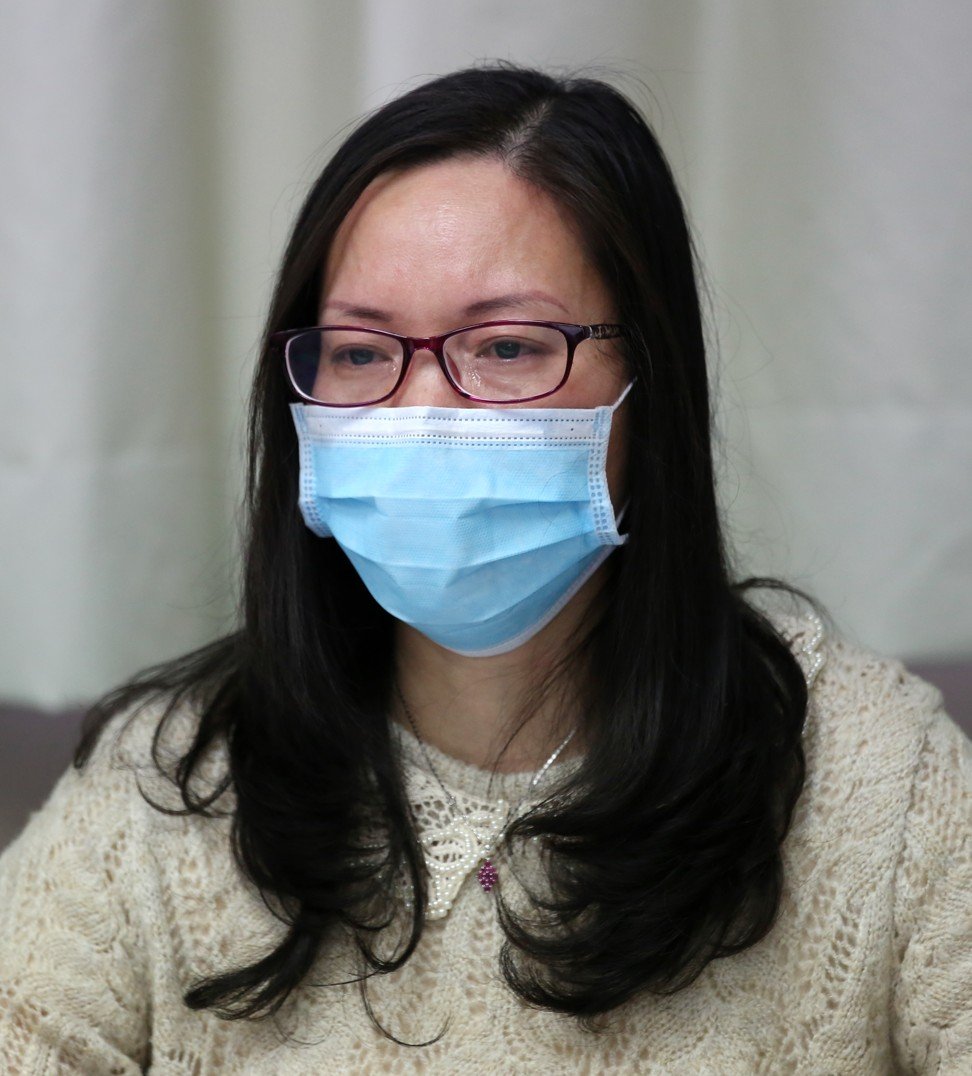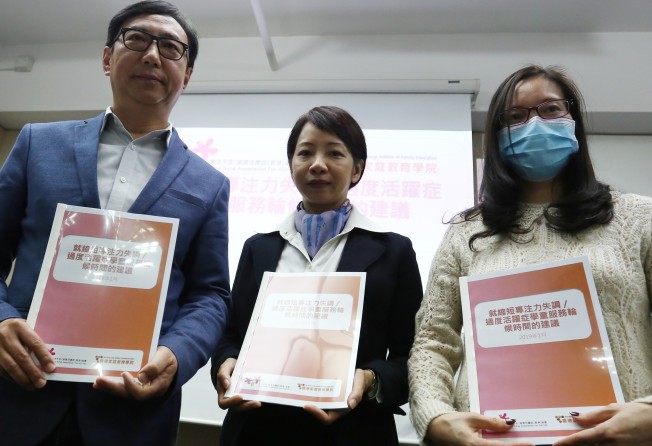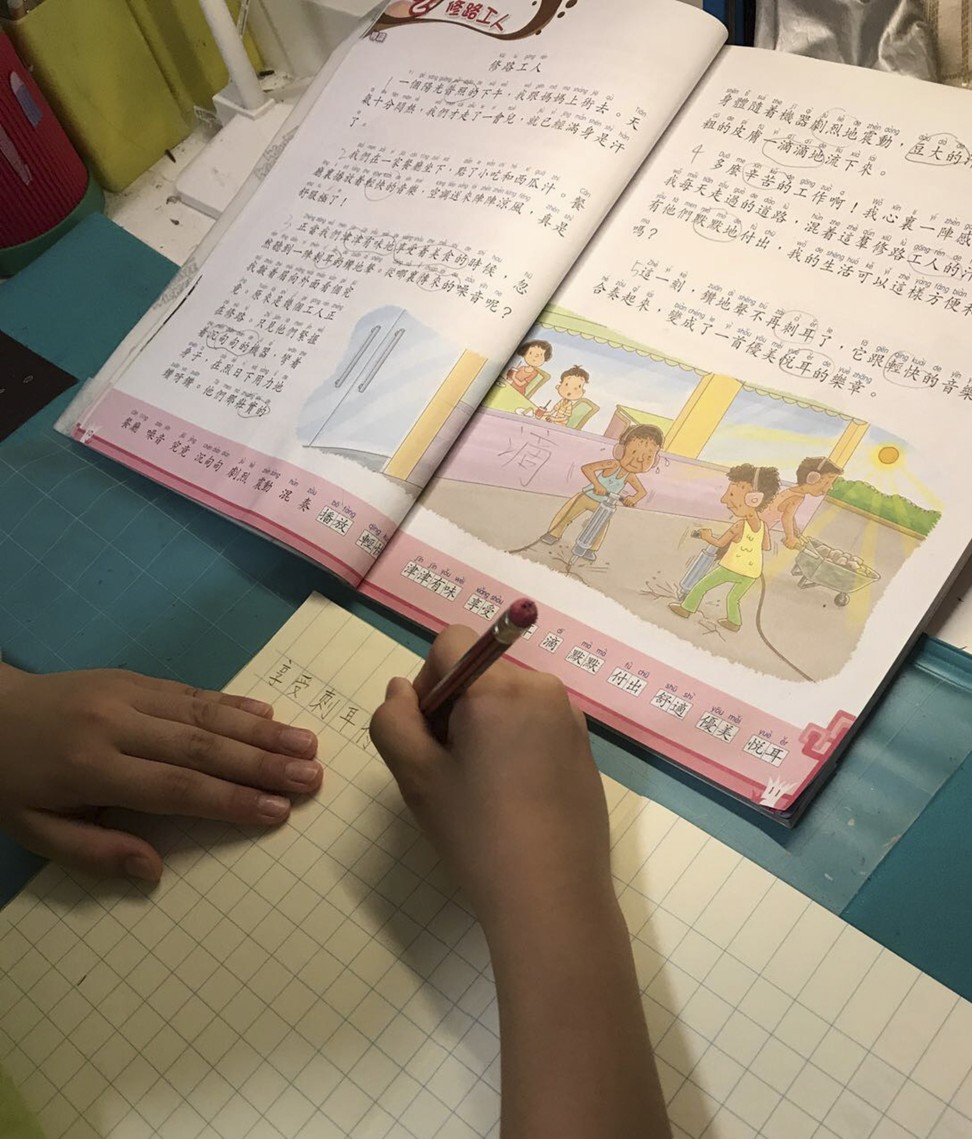
Hong Kong government urged to give subsidies to families to treat ADHD, as affected kids face long wait in public health care
- Forced to turn to private hospitals for treatment, families have found themselves in financial difficulty
- The Hong Kong Association for ADHD says new patients have to wait for up to 148 weeks for public sector hospital appointments

Long waiting times for attention-deficit hyperactivity disorder (ADHD) treatment at public hospitals have driven parents into financial hardships, and advocacy groups are calling for the government to subsidise families in using private services.
Carrie Ng, 49, said her jaw dropped when she learned that her 10-year-old daughter would not be able to have an appointment at the public Queen Mary Hospital’s children psychiatry division until 2020.
Ng’s first trip to the hospital was in July 2017, soon after her daughter had begun pulling her own hair and banging her head against walls.
“Is it because they can’t see her wounds, that they think there is no urgent need?” Ng said.
Desperate for answers, Ng took her daughter to a private clinic, where the girl was diagnosed with ADHD, a behavioural disorder characterised by poor attention span and hyperactivity, such as being unable to sit still and fidgeting.
Some children suffering from ADHD may also display negative behaviour towards authority figures, such as parents and teachers.
According to official statistics in the city, about 14,000 children were being treated for ADHD in the public sector in 2018.
Since 2017, Ng has spent about HK$10,000 (US$1,300) monthly for her daughter’s treatment and therapy.

Both the mother and the child are discriminated against
Although an appointment for her daughter at the hospital will be available this year, Ng said damage has already been done to their relationship and to the child’s studies.
“I can feel that my daughter is in great pain,” Ng said.
Another parent in a similar situation, Angela, said her son had little support at school, and is alienated from other pupils for his impulsive and sometimes disruptive behaviour.
“Both the mother and the child are discriminated against,” she said.
Because of the long waiting time and other factors, Angela said she plans to move to Canada, where schools are more inclusive for children with behavioural disorders.
“Then he will not have to sit all day and there will be no discrimination,” she said.
According to the Hong Kong Association for ADHD, waiting times for new patients to be seen at public hospitals ranged from 61 to 148 weeks in December last year.
Marcia Ng Mun-chi, who chairs the association, said the long waiting time could lead to children missing the “golden years” of being treated.
Dr Fanny Lam Wai-fun, a specialist in developmental-behavioural paediatrics, explained that a child’s executive function develops quickly before the age of nine.
During this period, proper treatment will allow children with ADHD to catch up with peers, Lam said.
Lam also said schools should accommodate children with ADHD, such as reducing their homework, and encouraging them to take part in team sports.

“Parents should work with schools … and give more positive feedback to the kids,” Lam said.
Former lawmaker Tik Chi-yuen, who now heads the Hong Kong Institute of Family Education, calls for the government to subsidise young children being treated for ADHD at private clinics.
The government should also increase manpower in child psychiatry to shorten waiting times to between three and six months, Tik said.
Labour Party lawmaker Dr Fernando Cheung Chiu-hung agreed that the government should subsidise families in getting private services, before children are treated in the public sector.
Cheung, however, said the policy should only be transitional.
“If the subsidy is long term, you cannot go back,” Cheung said.
In reply, the Hospital Authority admitted that some young patients thought to be in a stable condition have to wait longer, because of staff shortages.
During 2017-2018, the median waiting time for child patients with psychiatric needs was 85 weeks, it said.
“If the mental health condition of a patient changes, they can return to psychiatric clinics for reassessment,” an authority spokesman said.
The authority said it employed 347 doctors with psychiatric training.
It also said it employs a triage system for young patients with psychiatric needs, to ensure those with urgent cases are treated within a reasonable time.
Patients are classified as urgent, semi-urgent and stable.
The authority said its target was to keep waiting times for the first two types of patients to between two and eight weeks.
“This service commitment has been achieved,” the spokesman said.